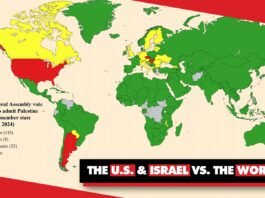Election Overview and Timeline
The local elections in North Macedonia, scheduled for October 19, 2025, mark a significant event in the country’s political calendar. This electoral process is critical for the governance of the 81 municipalities, with a special focus on Skopje, which serves as the nation’s capital. The outcome of these elections will influence local policies and administrative priorities, affecting residents at various levels.
Voters will participate in the initial round on October 19. In scenarios where no candidate secures the requisite majority, a second round of voting will occur on November 2, 2025. This two-round system is designed to ensure that the elected candidates have broad support within their communities. The local elections will include various positions, such as mayors and municipal councils, all of which play an integral role in local governance.
The voting process will be structured and accessible for all eligible citizens. Voters must ensure they are registered, with provisions in place for new registrations leading up to the election date. Polling stations will be set up across all municipalities, allowing voters to cast their ballots in a secure environment. Each voter will receive a ballot where they can select their preferred candidate, which highlights the democratic nature of the electoral system in North Macedonia.
Considering the importance of these elections, there will also be efforts to encourage civic engagement and awareness. Various initiatives are being proposed to educate the electorate about the candidates and their platforms, enhancing informed decision-making. As the date approaches, additional details about the election process and logistics will become available, ensuring a smooth and efficient voting experience for all involved.
Main Political Players
The local elections in North Macedonia in 2025 involve several key political players who collectively shape the electoral landscape. The ruling party, VMRO-DPMNE, led by Hristijan Mickoski, continues to be a dominant force in Macedonian politics. Under Mickoski’s leadership, the party has focused on promoting national sovereignty and reform initiatives designed to attract both domestic and foreign investments. Their electoral strategy primarily revolves around a campaign that emphasizes economic development, national pride, and stability, appealing to a significant segment of the electorate that prioritizes these issues.
In contrast, the opposition party, the Social Democratic Union of Macedonia (SDUM), presents itself as a champion of progressive policies and social justice. As the largest opposition party, SDUM aims to capitalize on public discontent with the current government by proposing reforms in healthcare, education, and public services. Their electoral strategy emphasizes grassroots mobilization, aiming to connect directly with citizens and address their immediate concerns, thus positioning themselves as a viable alternative to the ruling party.
Another significant player in the upcoming elections is the Democratic Union for Integration (DUI), the largest Albanian party, spearheaded by Ali Ahmeti. DUI has historically played a critical role in North Macedonia’s political dynamics, often acting as a supporter or challenger to the ruling parties. Their electoral strategy focuses on ethnic inclusivity and advocating for Albanian rights, capitalizing on their established voter base among ethnic Albanians while striving to expand their influence beyond this demographic.
Lastly, the challenger coalition Vlen, represented by Izet Mexhiti and Arben Taravari, aims to redefine the political discourse by positioning itself as a unifying alternative to both primary parties. Vlen’s strategy hinges on coalition-building and engaging younger voters who seek a politics of transparency and accountability. As the elections approach, the interplay between these parties will undoubtedly shape the outcomes and set the stage for the evolution of North Macedonia’s political landscape.
Political Relevance and Implications
The 2025 local elections in North Macedonia hold significant political relevance for Prime Minister Mickoski’s government, as they serve as a crucial barometer of the administration’s effectiveness and stability. These elections are particularly critical in the context of majority-Albanian municipalities, where the dynamics of local governance can reflect broader national issues such as cooperation between ethnic groups, the fulfillment of minority rights, and the overall health of democracy in the country. The results of these elections will provide insights into the government’s ability to maintain its grip on power, especially in regions where Albanian parties traditionally dominate.
The outcomes in these local elections will not only shape the political landscape at the municipal level but will also serve as a precursor to the national political climate. A strong performance by the ruling party could be interpreted as public endorsement of its policies and governance approach, while significant losses might indicate dissatisfaction with the government’s handling of pressing issues. The implications could affect party dynamics, coalition-building efforts, and the strategies of opposition parties moving forward.
Furthermore, the elections could influence North Macedonia’s trajectory towards European Union integration. A government perceived as effective and responsive to the needs of its citizens, including minority populations, may bolster the country’s standing in the eyes of EU officials. Conversely, election results that demonstrate ethnic tensions or inadequate representation of minority rights could hinder progress in negotiations with the EU. Therefore, the 2025 local elections will be instrumental not only in shaping the immediate political environment but also in determining the long-term stability and European aspirations of North Macedonia.
Contextual Factors Affecting the Election
The 2025 local elections in North Macedonia are poised to unfold within a multifaceted context defined by social, economic, and historical factors. Understanding these elements is crucial for comprehending voter behavior and potential election outcomes. One significant aspect is the economic situation facing the country. Recent economic developments, including GDP growth rates and unemployment statistics, will likely shape public sentiment. Citizens’ perceptions of the government’s effectiveness in addressing economic challenges can influence their voting decisions, particularly when evaluating local candidates and parties.
Moreover, social factors play a vital role in shaping the electoral landscape. Cultural diversities, regional disparities, and demographic trends can create differing priorities among voter segments. The growing emphasis on civic engagement and participation among younger demographics, coupled with an increasing trend towards social activism, may result in heightened scrutiny of local governance and policy effectiveness. These social dynamics will likely reflect in the electoral campaigns as candidates strive to address the concerns and aspirations of various communities.
Historical factors are also essential to consider. The political legacy of previous elections, marked by contentious party rivalries and issues of governance, continues to resonate with voters. Past electoral results indicate patterns of support that may persist or evolve based on recent government performance. Additionally, the impact of international relations and regional stability cannot be overlooked, as these factors can influence nationalist sentiments and voter alignments.
Recent developments, including significant legal reforms and public policies, will also play a critical role in shaping the electoral context. The effectiveness of these measures, and public perception thereof, will be pivotal as the election date approaches. Overall, grasping the complexities of the electoral environment of North Macedonia will be fundamental for understanding the stakes involved in the upcoming local elections.




